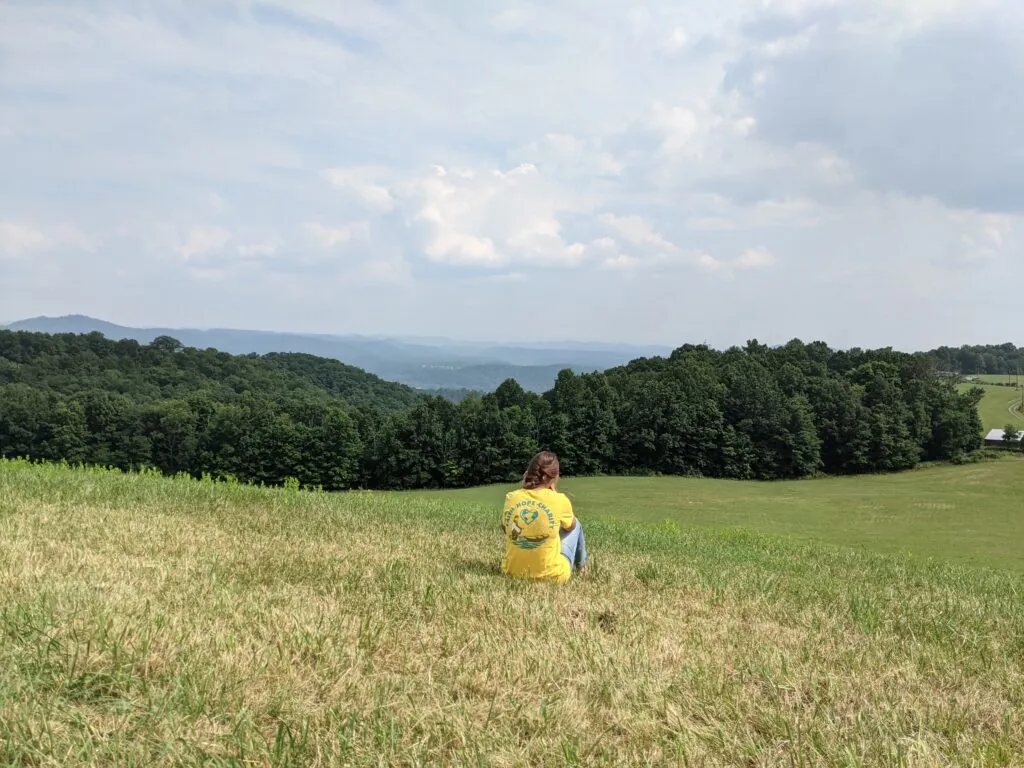No internet, no problem! Days of hard work and prayer at Bethlehem Farm in West Virginia transformed the lives of young members and the people they served.
Every year, Catholic Order of Foresters (COF) offers a week-long Alternative Break service trip to members ages 16–24 spearheaded by COF’s Fraternal Outreach team. Over the years, college-age members have gone to Louisiana, Georgia, Kentucky, Texas, and this year, to West Virginia.
Lizzie Middendorf, Helena Kaelin, Sean Williams, and Matt and Zach Bierman journeyed with Kaitlynrose Bicek and me, Michael Cesario, to Bethlehem Farm, a Catholic retreat center nestled among the rolling hills of Alderson, West Virginia.
For these young members who signed up, this year’s Alternative Break was an opportunity to live simplistically and off the grid, far away from phones and the internet and all other modern distractions. This was a chance to step back from the daily hustle.
“I really wanted to disconnect from my busy life,” said Helena Kaelin, a student at Western Kentucky University and member of St. Catherine of Siena 2514 in Fort Thomas, Kentucky.
There’s an immediate mental takeoff at the beginning of service trips, an overwhelming feeling that forces its way in and demands that you embrace a holistic experience. The spiritual intensity of service trips — often an impression that occurs at the point of arrival — has always puzzled me. People change when they’re immersed in a new way of living, even if only for a week.
Ask a group of young adults to camp on a mountaintop without computers, internet access, or smartphones, and you might assume their collective response will be invariably negative. It often is. But something changes after the first day or two.
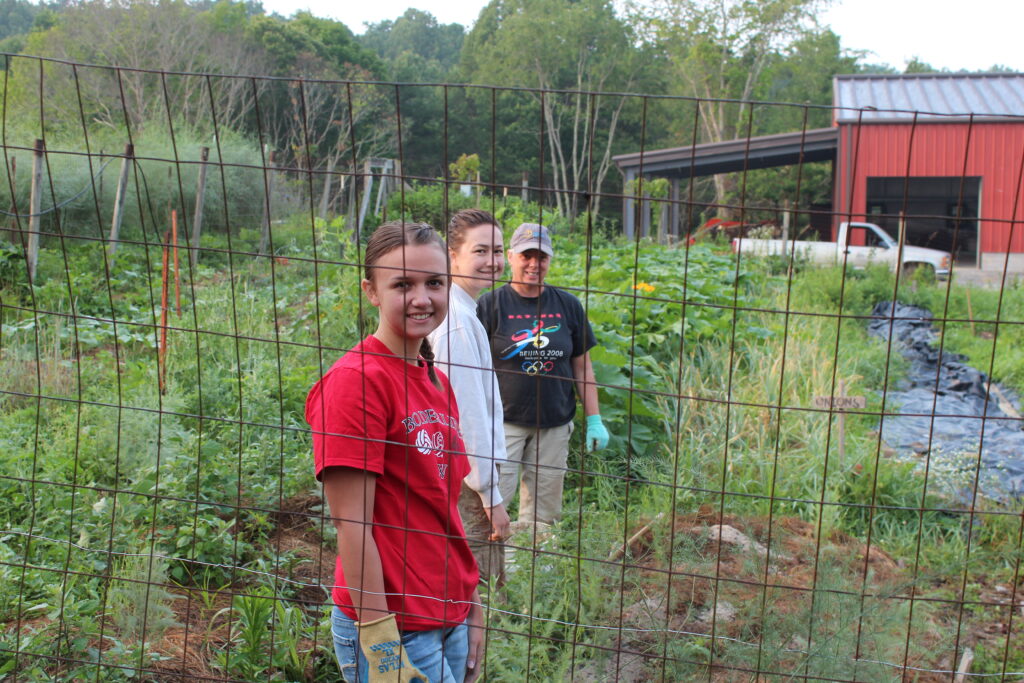
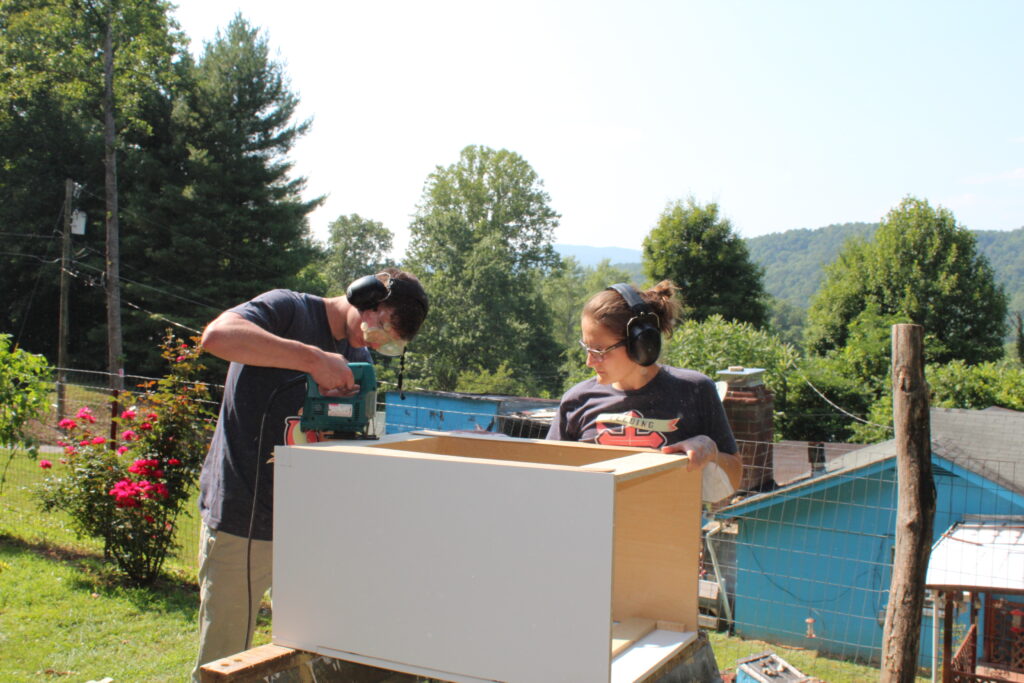
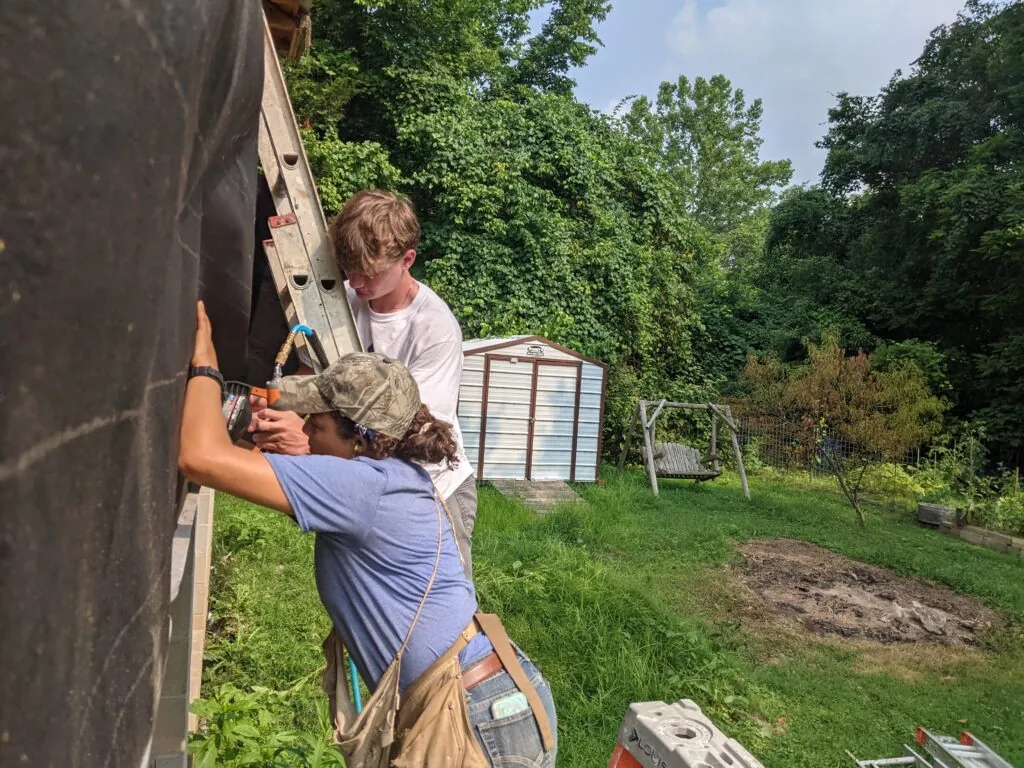
Embracing Simplistic Living
Guiding a group of young adults to find solidarity with the people they’re serving requires them to live below their means. Essentially, there’s a reason that Bethlehem Farm, a retreat center that practices four cornerstones of the Gospel — service, prayer, simplicity, and community — is in remote Appalachia. On service trips like this, you immerse yourself in a nonmaterial lifestyle.
At 6:30 a.m. each day, we awoke to music, but before breakfast, each of us completed tasks around the volunteer house. We collected eggs from the chicken coop, picked fresh raspberries from the orchard, and harvested garish herbs from the sprawling garden. All the food we consumed during the week was sustainable. The concept of cherishing what little you had instead of indulging helped shift the group’s perspective so quickly.
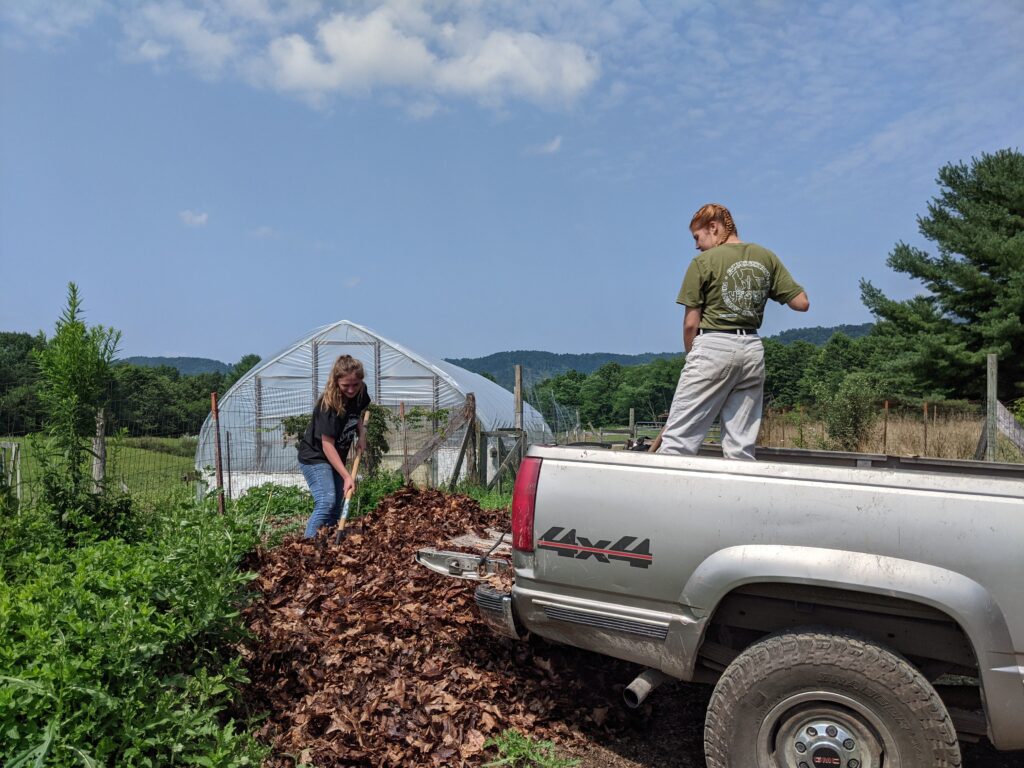
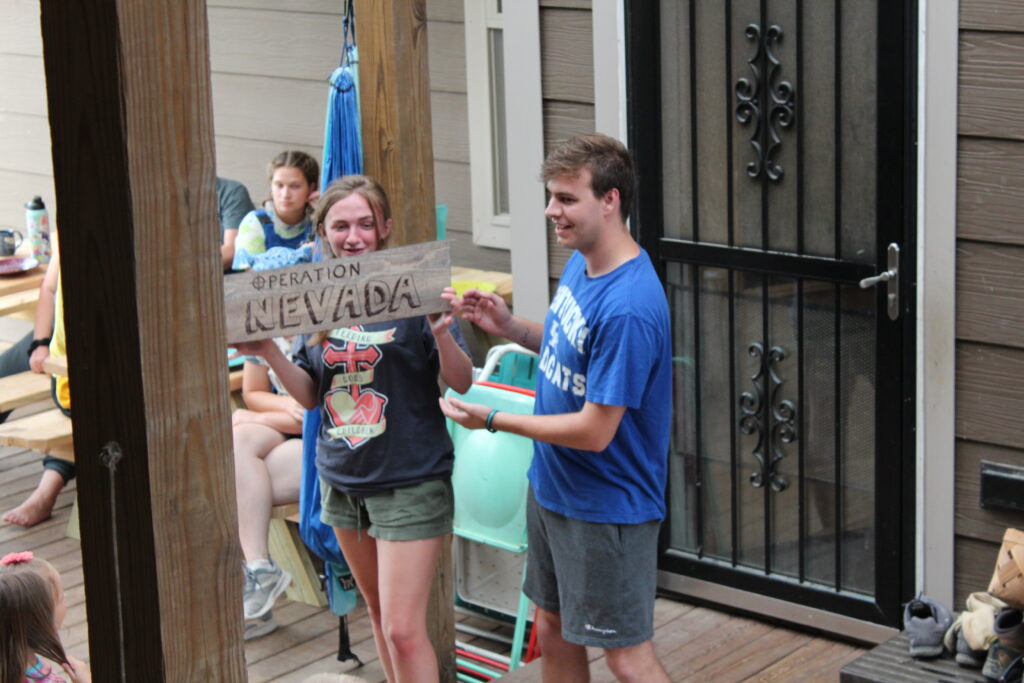
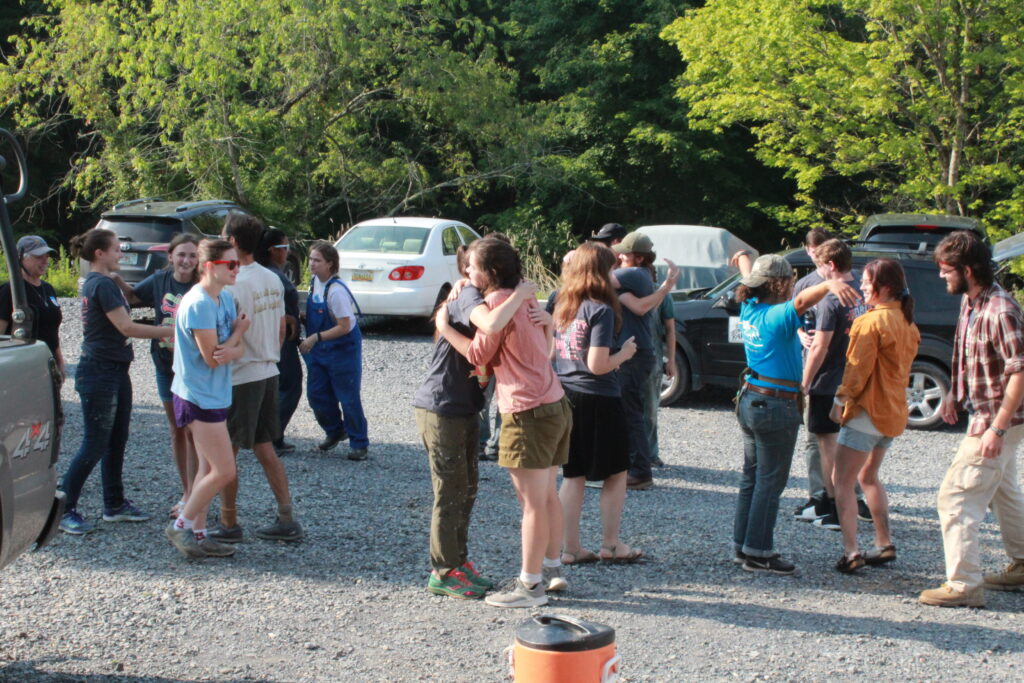
Embracing Appalachia
Days at the worksites were physically challenging. We worked in the heat, surrounded by bugs in the thickly wooded valleys of the Appalachians. In between installations and trips carrying equipment, the homeowners made their way out to strike up conversations. We were all grateful they took the time to teach us something about their lives.
This is usually a shocking revelation to people: Some Americans truly lack electricity and running water access. In turn, we humbly adopted similar living conditions.
When we got back from the day of work, we would be warmly welcomed by the Bethlehem Farm staff and our fellow volunteers before sitting down to dine. After dinner, we would get a bit of free time before evening prayer.
“In my free moments, I would sit in my hammock and stare at the beautiful trees,” said Lizzie Middendorf. “And I saw God there.”
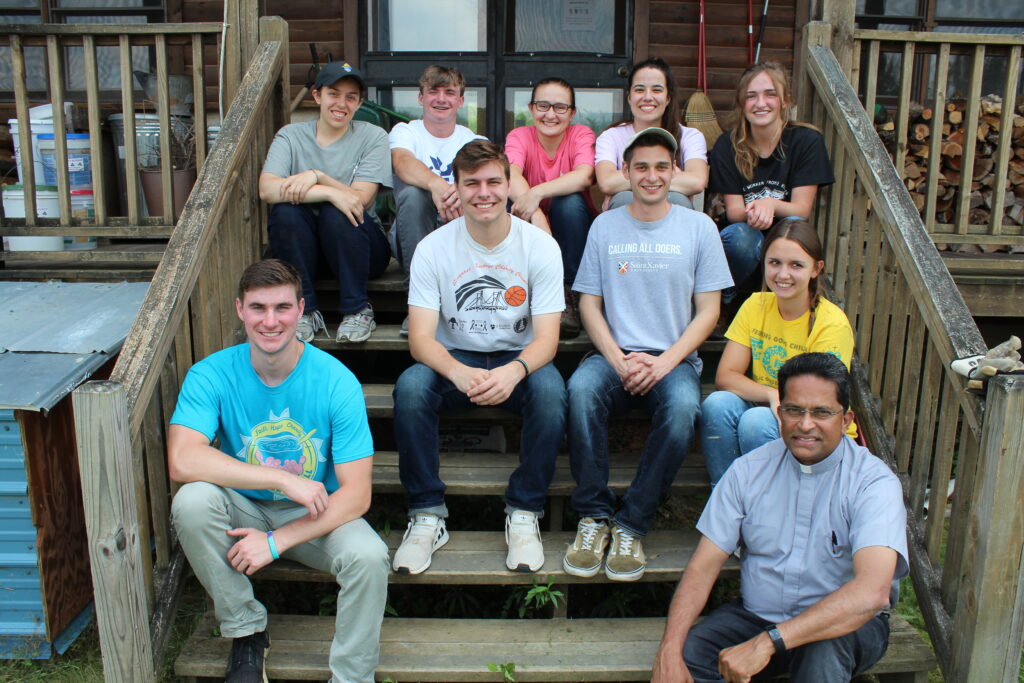
God Is Everywhere
This group of young members found God in sheer human connection.
“I saw God in every person we met,” said Helena, reflecting on where God revealed Himself that week. “We’re reconnecting with ourselves along the way.”
The other catalyst for spiritual growth was the nature of our work. After daily breakfast, we were divided into groups before setting out to the worksite. The next thing we knew, not only were we wielding hammers, cutting drywall, and installing toilets; we were also meeting West Virginians with fascinating life stories.
“The community that Catholic Order of Foresters brings to these trips is unlike anything I’ve been a part of,” said Zach Bierman, a three-time Alternative Break participant. “It’s something I love to do every year, and I hope to do more.”
Article by Michael Cesario
